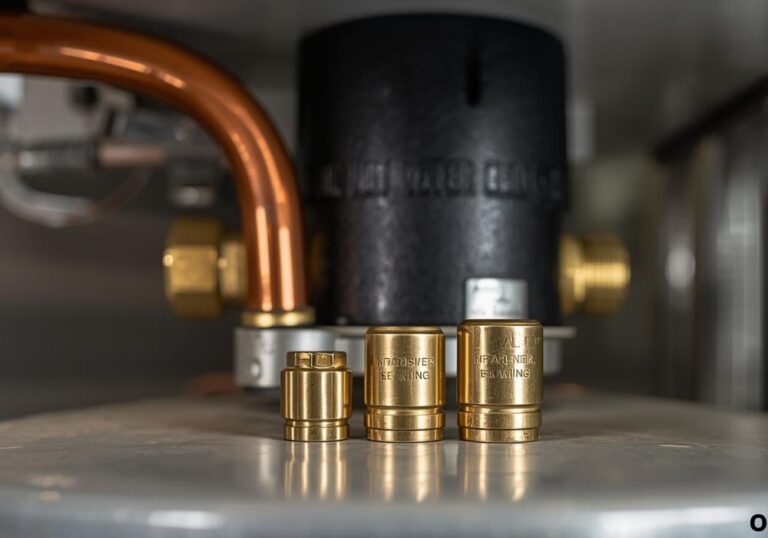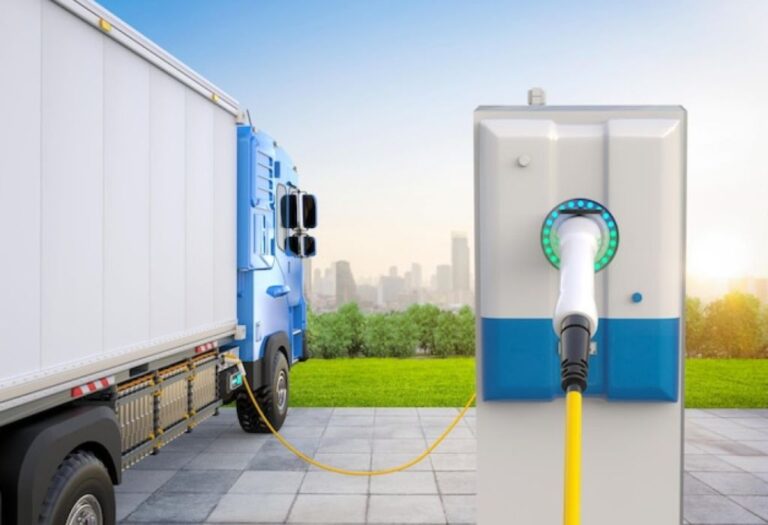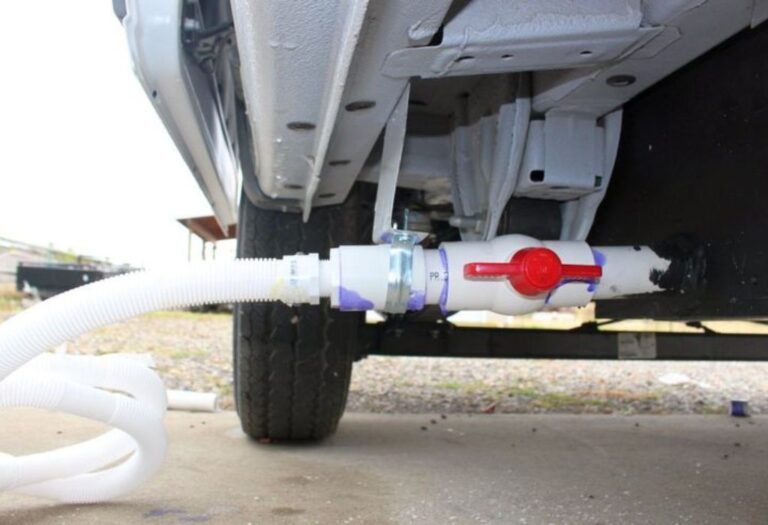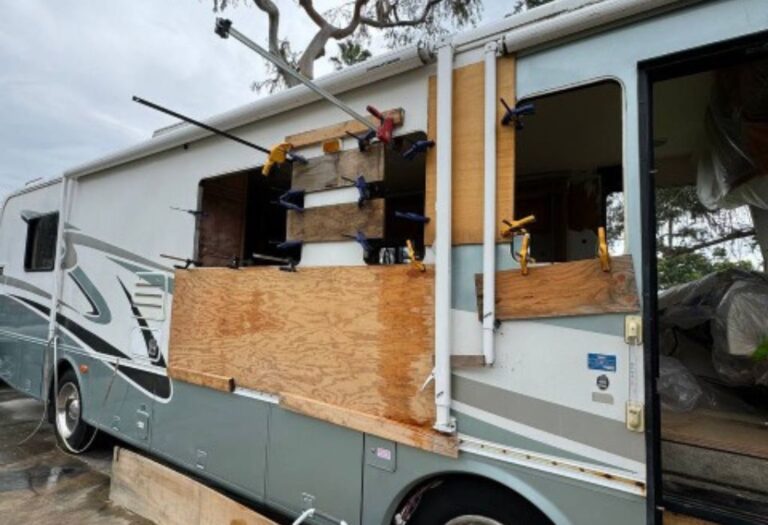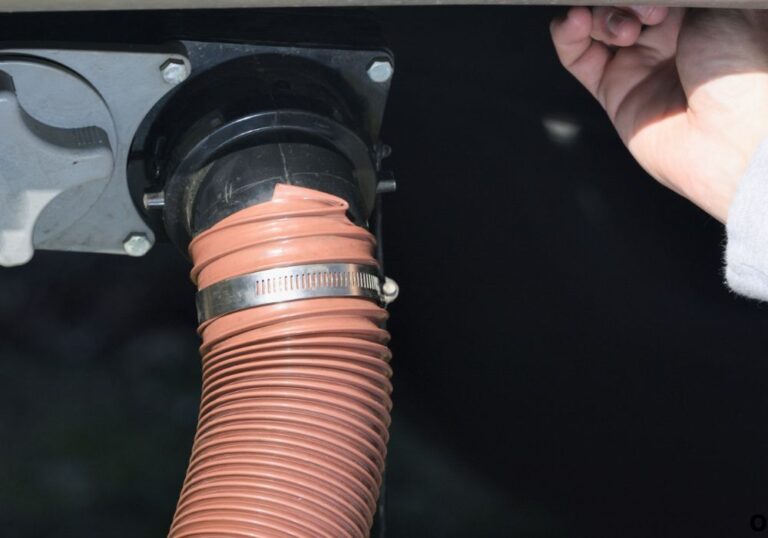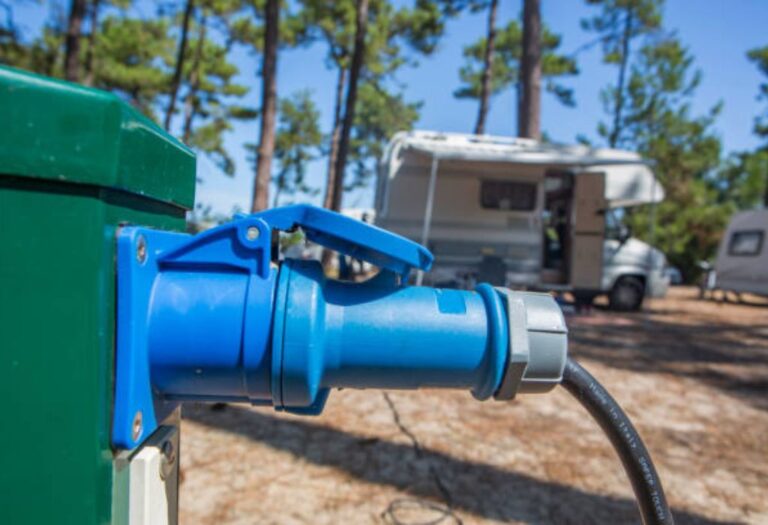Do RV Outlets Work on Battery or Just on Shore Power?
You pull into a quiet campsite, shut off your RV engine, and prepare to relax. You grab your charger, plug it into the wall outlet, and find nothing happens.
For many new RV owners, this is the moment of confusion. The lights and fans still work on battery power, but the outlets seem completely dead.
This difference comes from the way an RV is wired. It contains two separate electrical systems, one powered by a 12-volt battery and the other designed for 120-volt outlets.
The 12-volt system handles basic needs like lights, the water pump, and fans. The 120-volt system powers household-style outlets, microwaves, and appliances that require standard AC power.
When you are plugged into shore power at a campground, all outlets work normally. If you are using a generator, they also supply 120V AC to run the outlets.
On battery power alone, outlets will not work without an inverter. An inverter converts 12V DC battery power into 120V AC, making it possible to use outlets off-grid.
According to the RV Industry Association, more than 11 million U.S. households own an RV, and over half of them camp without hookups 【source: https://www.rvia.org】. Knowing whether RV outlets work on battery is essential for safe and comfortable off-grid travel.
This guide explains when RV outlets work on battery, what equipment makes it possible, and how to use your power system wisely while camping off-grid.
Understanding the RV Electrical System
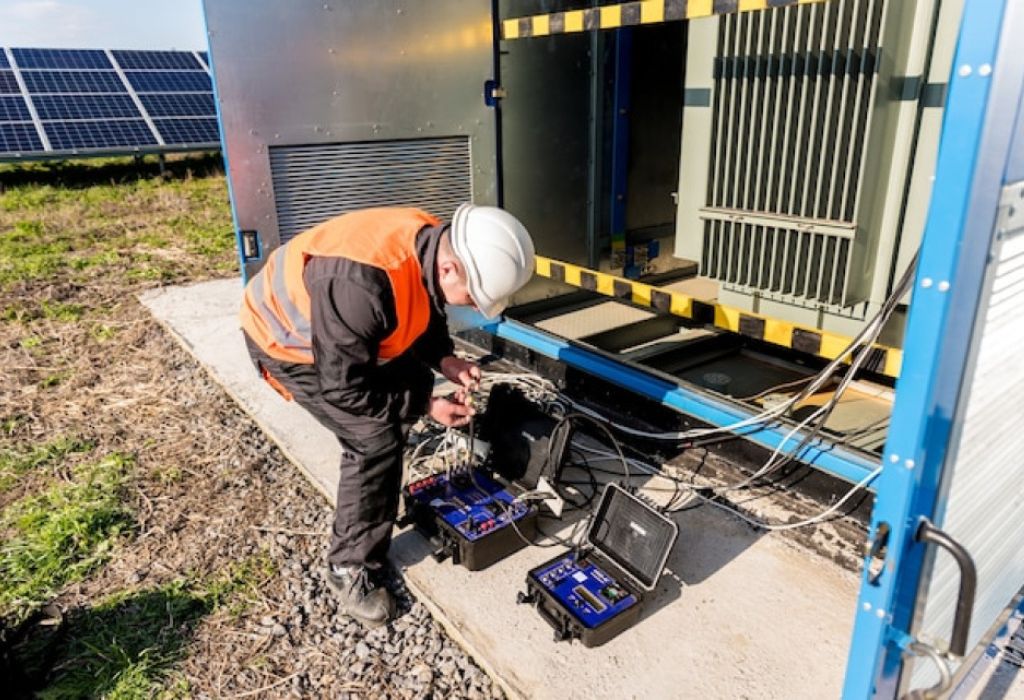
Every RV has two distinct power systems. The 12-volt DC system comes from the RV’s battery, while the 120-volt AC system powers outlets and large appliances.
The 12-volt DC system is essential for off-grid camping. It keeps lights, water pumps, fans, and control panels working even when no hookups are available.
The 120-volt AC system is what powers standard household-style outlets. These outlets require shore power, a generator, or battery power converted through an inverter.
A converter changes AC power from shore hookups into DC power for charging batteries. This allows the RV’s 12V system to stay active while plugged in.
An inverter does the opposite. It takes DC power from the battery and turns it into AC power that outlets can use.
Without an inverter, the battery cannot power outlets. That is why so many campers are surprised when plugs do not work after unplugging from shore power.
Some modern RVs come with factory-installed inverters. Many entry-level models, however, require aftermarket installation to make outlets usable from battery.
Understanding these two systems is the first step toward using outlets effectively on battery power.
Do RV outlets work on battery directly?
No, they require 120V AC, which batteries alone cannot provide.
What does the RV battery power?
It powers 12V items like lights, water pumps, and fans.
What makes outlets run?
Outlets need shore power, a generator, or an inverter.
Can I use outlets off-grid?
Yes, but only with an inverter installed.
When Do RV Outlets Work on Battery?
RV outlets work on battery only when an inverter is installed. The inverter is the critical device that allows 12V DC power to become 120V AC power.
Without an inverter, outlets remain inactive while running on battery alone. The battery by itself does not produce the type of electricity outlets require.
Some newer RVs have partial inverter systems built in. These may power just a few outlets, usually near entertainment centers or the kitchen.
Other RVs have full inverter systems. These allow every outlet in the vehicle to work from the battery, though runtime is limited.
Battery capacity directly affects how long outlets remain functional. A single 12V battery cannot power appliances for long.
Large battery banks provide much more flexibility. Many full-time RVers upgrade to lithium batteries for extended runtime and faster charging.
Choosing the right inverter size also matters. Small inverters can handle laptops and phones, while large inverters are needed for kitchen appliances.
Knowing your RV setup is the only way to determine whether outlets will work on battery power.
Do RV outlets work on battery without inverter?
No, an inverter is required to run outlets.
What is an inverter in an RV?
It is a device that converts 12V DC to 120V AC.
Do all RVs come with inverters?
No, many entry-level models do not.
Can one battery run outlets?
Yes, but only for small loads like electronics.
Common Appliances You Can and Cannot Use
Small devices are the most realistic items to run on battery through an inverter. Phones, tablets, LED lights, and laptops are low-draw electronics.
These items consume very little power. They can run for hours without draining the battery too quickly.
Medium-draw items like televisions or Wi-Fi routers are possible. They use more energy but are manageable with a decent inverter and a healthy battery.
Kitchen appliances like blenders, microwaves, or coffee makers present challenges. They draw a large amount of current and may drain a battery in minutes.
Hair dryers, space heaters, and air conditioners are not practical on battery. These appliances require massive amounts of energy that far exceed most RV battery banks.
Solar panels can help extend runtime for small appliances. They cannot provide enough consistent energy for heavy appliances.
Most RV owners learn to balance their power use. Essentials are prioritized, and heavy appliances are reserved for shore power or generator use.
Planning ahead ensures you are not left without electricity during your trip.
Can I run a TV on battery?
Yes, with an inverter, but runtime is limited.
Can I run a microwave on battery?
Not realistically unless you have a large battery bank.
Can I charge phones on battery?
Yes, they use very little power.
Will air conditioning work on battery?
No, it requires shore power or a generator.
Shore Power vs Generator vs Battery
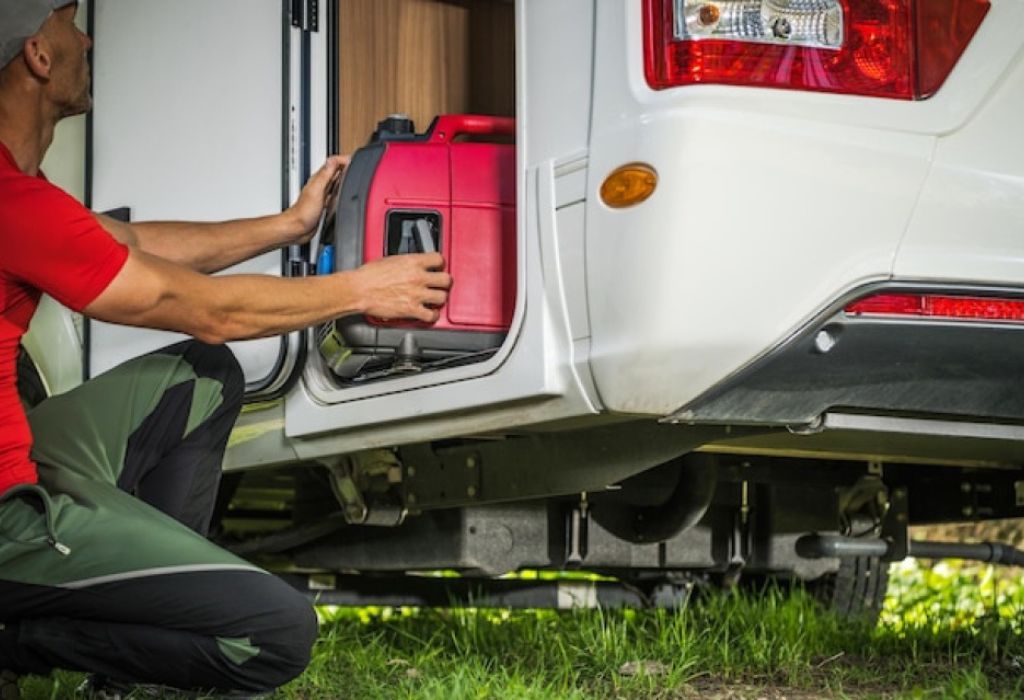
Shore power is the easiest and most reliable way to run RV outlets. Plugging into a campground pedestal supplies unlimited AC electricity.
With shore power, every outlet in the RV works like at home. Large appliances can be used without draining the battery.
Generators provide an alternative when camping off-grid. They create AC power that runs outlets and recharges the battery at the same time.
Batteries alone cannot power outlets without an inverter. Even then, capacity is limited, and heavy appliances are not practical.
Most RVers use a mix of all three sources. Shore power is preferred at campgrounds, generators are used in remote locations, and batteries power essentials.
The right balance depends on your camping style. Weekend campers may rely on shore power, while full-timers invest in generators and solar setups.
Batteries play the supporting role. They keep essentials working when neither shore power nor generator is available.
Knowing when to use each option makes life easier and more efficient in your RV.
Do outlets work when plugged into shore power?
Yes, they function exactly like home outlets.
Does a generator power outlets?
Yes, it supplies 120V AC to the system.
Do batteries alone run outlets?
No, unless paired with an inverter.
Which option is most reliable?
Shore power is the most consistent.
How Long Can RV Outlets Run on Battery?
The runtime of outlets on battery depends on multiple factors. Battery type, inverter size, and the devices plugged in all affect results.
A standard lead-acid battery provides only limited energy. Small electronics may run for a few hours before the battery drains.
Lithium batteries perform much better. They provide more usable capacity, recharge faster, and last longer.
Inverter efficiency also matters. Some energy is always lost during conversion from DC to AC power.
Small loads like phone chargers or LED TVs may run all day. Heavy loads like microwaves may drain a single battery in under 20 minutes.
Solar panels can help extend usage, but only for light loads. They are not powerful enough to keep up with heavy appliances.
Large battery banks improve runtime dramatically. Many full-time RVers install multiple lithium batteries to power outlets longer.
Ultimately, managing power is the only way to make outlets last on battery.
How long will one battery last?
A few hours with light electronics.
Do lithium batteries last longer?
Yes, they provide more usable energy.
Does inverter size matter?
Yes, it determines what devices you can run.
Can solar recharge the battery?
Yes, but only for light usage.
Tips for Using RV Outlets on Battery
Install a pure sine wave inverter for the best results. Modified sine wave inverters may damage sensitive electronics.
Upgrade to lithium batteries if your budget allows. They are more efficient and provide longer runtimes than lead-acid batteries.
Use solar panels to recharge your system when off-grid. This reduces generator use and extends battery life.
Always manage your loads carefully. Do not run too many devices at once, and prioritize essentials.
Turn off lights and appliances when not in use. Even small savings add up over time.
Avoid using high-wattage appliances on battery. Reserve those for shore power or generator operation.
A battery monitor helps track power use. Monitoring prevents accidental deep discharges that shorten battery life.
Following these tips keeps your outlets safe and reliable on battery power.
Do I need a pure sine wave inverter?
Yes, for sensitive electronics like laptops and TVs.
Is solar enough for outlets?
Yes, for small devices only.
Should I upgrade to lithium?
Yes, for longer runtime and better efficiency.
How can I save battery power?
By limiting loads and turning off devices.
Safety Considerations When Running Outlets on Battery
Overloading an inverter can cause it to fail. Always check the wattage rating before plugging in appliances.
Improper wiring is a fire hazard. Use correct cables, fuses, and breakers for protection.
Running high-wattage devices on battery can overheat the system. This is unsafe and shortens battery life.
Batteries can be damaged if discharged too deeply. This is especially true for lead-acid batteries.
Never leave heavy loads running unattended. Appliances like heaters and coffee makers are best avoided on battery.
Professional installation is recommended for inverters. Incorrect setup can damage the system or create electrical hazards.
Regular inspections keep the system safe. Check for frayed wires, loose connections, and corrosion.
Safety should always come first when modifying RV electrical systems.
Can I overload my RV outlets?
Yes, if you exceed the inverter’s limits.
Will batteries overheat?
Yes, under heavy or prolonged discharge.
Should I run heaters on battery?
No, they drain power too quickly.
Do I need fuses and breakers?
Yes, they protect your system from failure.
Alternatives to Running Outlets on Battery
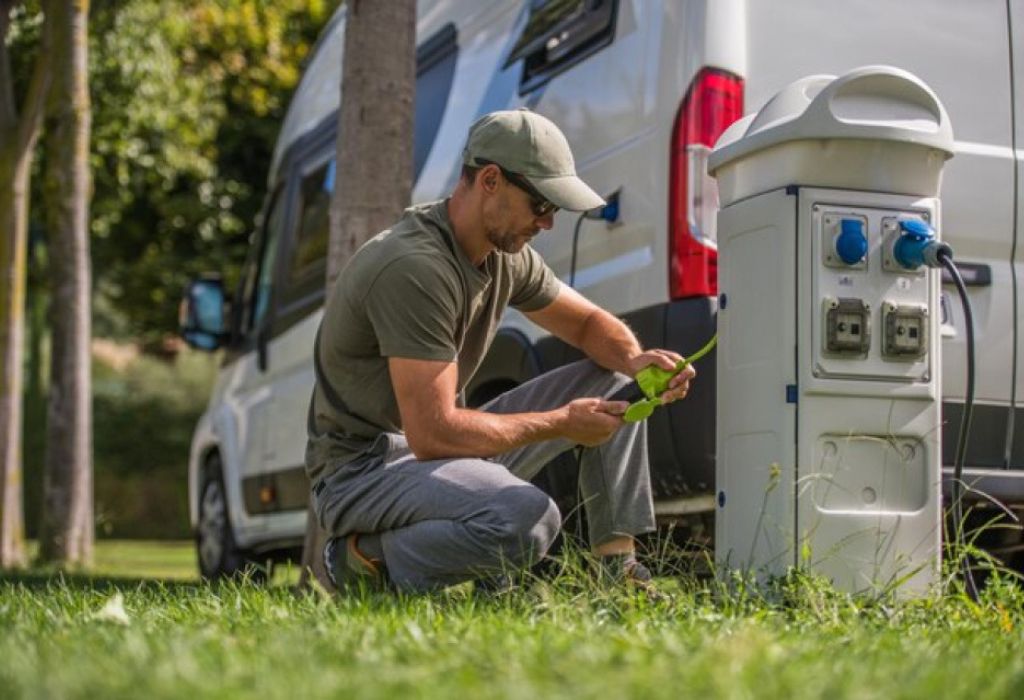
Using 12V appliances is one of the best alternatives. These devices plug directly into the battery system.
Most modern RVs include USB charging ports. These run directly off 12V power and are efficient for small electronics.
Propane appliances reduce the need for electricity. Many RVs use propane for cooking, refrigeration, and heating.
While driving, the alternator recharges the RV battery. This allows you to charge devices without draining your reserves.
Portable power stations are another alternative. They can be recharged by solar and used as a separate source of AC power.
Combining these alternatives reduces strain on your RV battery. It ensures more reliable power while camping off-grid.
Many RVers mix multiple solutions. This provides flexibility and peace of mind on the road.
Smart planning always pays off when managing energy.
Are 12V appliances better?
Yes, they are efficient and battery-friendly.
Do RVs have USB ports?
Yes, most modern RVs include them.
Can propane replace electricity?
Yes, for cooking, refrigeration, and heating.
Can driving recharge the battery?
Yes, through the vehicle alternator.
Future of RV Power Systems
Lithium batteries are quickly becoming the standard in new RVs. They provide better performance and efficiency than older technologies.
More RV manufacturers are adding factory-installed inverters. This allows outlets to work on battery right from the dealership.
Solar-ready RVs are also becoming common. Many rigs now include wiring for rooftop solar panels.
Smart monitoring systems are on the rise. Apps let owners track battery health, power draw, and charging in real time.
Eco-friendly power systems are shaping the future. RVers want quiet, renewable energy solutions for off-grid camping.
Solar and batteries may soon reduce the need for generators. This makes camping quieter and more sustainable.
Technology continues to evolve each year. Future RVs will be smarter, cleaner, and more efficient.
The goal is more independence and less reliance on hookups. Off-grid freedom is becoming the new standard for RV travel.
Will all RVs have inverters soon?
Yes, many already do.
Will solar replace generators?
Yes, for small loads, but not for air conditioners yet.
Are lithium batteries worth it?
Yes, they last longer and recharge faster.
Will RV power systems get smarter?
Yes, digital monitoring is becoming common.
Conclusion
RV outlets do not run directly on battery power. They need an inverter to convert 12V DC into 120V AC electricity.
Light electronics like phones and laptops can run this way. Heavy appliances still require shore power or a generator.
Battery size, inverter rating, and power management all affect performance. Upgrading to lithium and solar can extend runtime significantly.
For anyone asking “do RV outlets work on battery,” the answer is yes — but only with the right equipment. Understanding your RV’s power system ensures safe and reliable camping off-grid.
I’m David R. Coleman, the founder, lead writer, and lifelong tool enthusiast behind GarageToolPro.com. With years of experience in automotive repair, woodworking, and home DIY projects, I created this platform to share practical tips, detailed tool reviews, and step-by-step guides that help mechanics, hobbyists, and homeowners get the job done right the first time.

